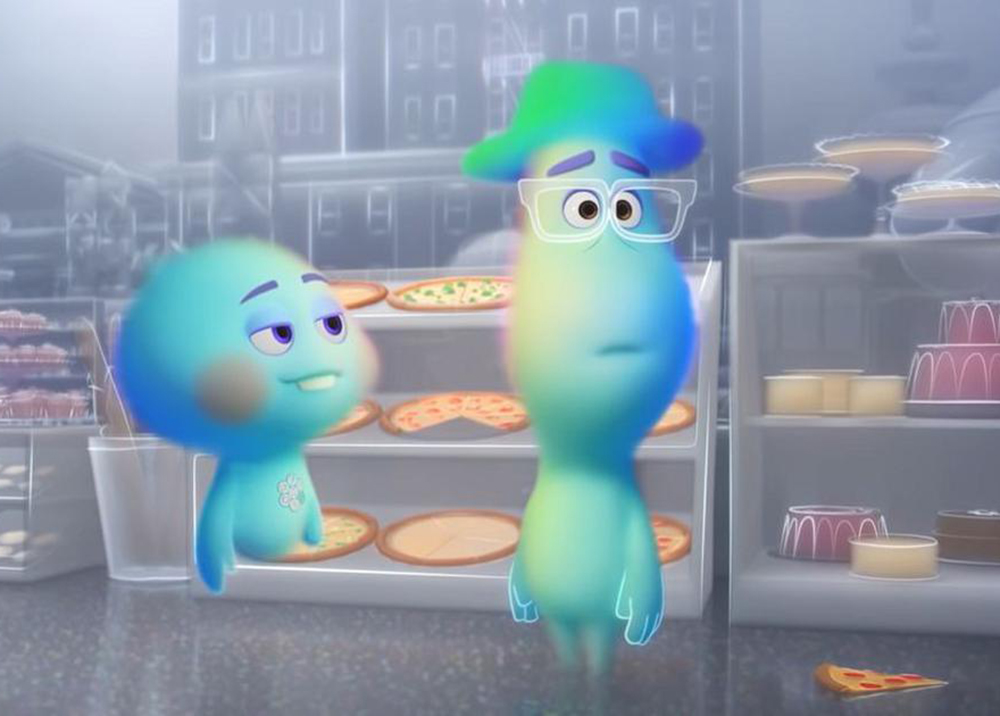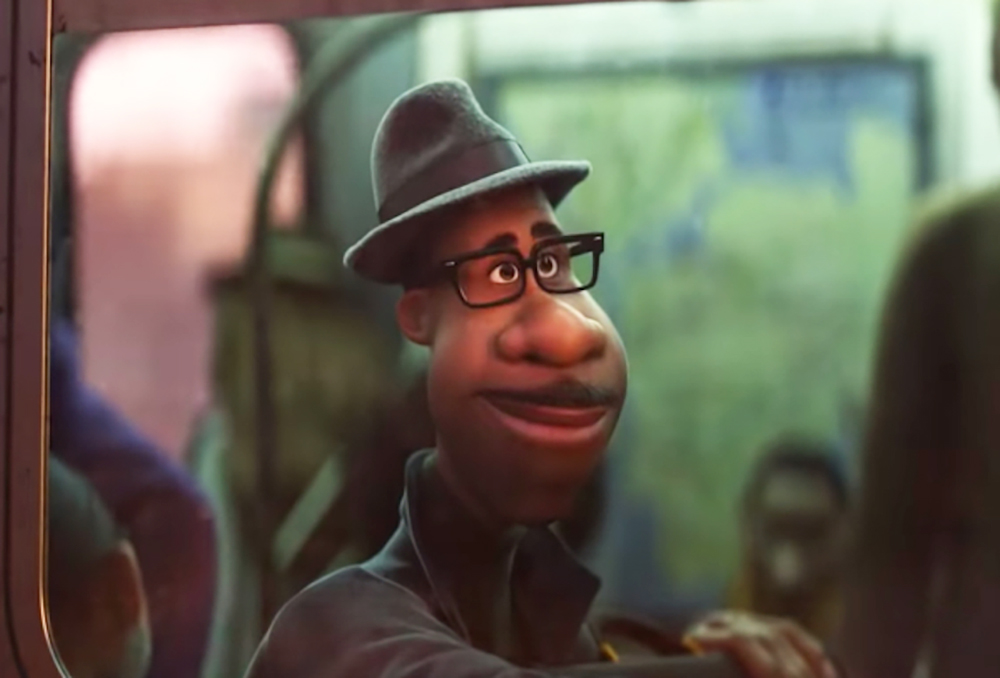Each of us possesses a drive to do something. More than likely, that something is not the same thing as whatever it is we find ourselves doing at the present moment. It is up to us to ascertain what that something is, but for many of us, it will come to influence our every decision and color our every waking thought. Colloquially, that something is known as our dreams, the hopes and aspirations that keep our eyes planted squarely on the horizon ahead of us, even when the realities around us do not align with our conception of an ideal existence. It is necessary to have dreams. They compel us to continue participating in the process of bettering ourselves, working towards the ambitions that are positioned just beyond our current reach.
As the creative minds behind “Soul” would put it, our dreams serve as our “spark” for living in the first place. For Joe Gardner (Jamie Foxx), the identity of his own spark has never been in question: he wants to be a jazz musician. Ever since his father, who also devoted his life to music, brought him to a jazz club as a reluctant child, he has been motivated and inspired by music above all else. While his artistic pursuits have yielded little in the way of actual results or success up to this point in his life (something many of us can probably identify with), his passion for the piano and all things jazz loom far too large in his, well, soul for him to give up on his dreams—even as a middle school band teacher sauntering through his middle-aged years devoid of personal fulfillment or satisfaction.
Upon receiving a phone call from Curley, a former student of his, Joe stumbles upon the opportunity of a lifetime, right smack dab in the middle of his banal routine on a relatively average day (that’s often when such life-altering occurrences present themselves, isn’t it?). Curley, a drummer in famed jazz musician Dorothea Williams’ band, calls upon Joe to fill in as the band’s pianist at a gig later that evening. After nailing the audition and being personally invited into the band by an impressed Dorothea herself, Joe feels like the life he has always dreamed of is finally beginning.
That is until he absentmindedly falls into an open manhole and subsequently wakes up as his soul, which has been detached from his physical body and sent on its way to the afterlife, portrayed here as a celestial plane known as “The Great Beyond.”
For the next 25 minutes or so, “Soul” takes viewers on a puzzlingly ethereal journey into the annals of life after death. This particular take on the inner machinations of the afterlife was confounding, even convoluted, especially for a film that is ostensibly geared towards children and families. While the writers were obviously aiming towards an illustration of “what comes next” that would be palatable for younger audience members without sacrificing their propensity to infuse zany creativity into basically everything, “Soul’s” vision of the spiritual realm came off more like the bewildering ramblings of that crazy uncle who swears he’s in contact with his astral brothers.
It was at this point in the proceedings that Pixar’s latest feature began to lose me. I feared Pete Docter, one of the film’s three credited writers as well as co-director, may have gotten too caught up in the minutiae of the world he helped create at the expense of a well-crafted, compelling narrative.

The apprehensions I harbored throughout this portion of “Soul’s” preliminary stages were thankfully unfounded, and the film eventually found its footing as it confidently vaulted into the myriad twists and turns of its second act. Joe proved a strong central protagonist. His emotional expedition towards coming to terms with his purpose in life and learning to cherish the little moments of peace and joy that are sprinkled over the course of everyday life was a thoroughly touching character arc that gave the film a real beating heart. The supporting cast is headlined by 22 (Tina Fey), an untethered soul learning to value life in all of its challenging intricacies. She fills out the rest of the screen well, providing a healthy dose of comic relief while undergoing an affecting spiritual journey of her own.
I would be remiss if I neglected to properly acknowledge the work done by the extremely talented musicians that provide the music featured throughout the movie. Jon Batiste was responsible for the jazz compositions that appear in the film, all of which were truly excellent and made it hard not to emulate Joe’s affinity for the art of jazz. Trent Reznor and Atticus Ross put together “Soul’s” non-diegetic score, and their compositions were wonderfully complementary to the rest of the film. Their marriage of slick, sci-fi synths with more traditional orchestral sounds was hugely effective.
If “Soul” showcases anything, it’s that animated cinema does not need to be immature or dumbed-down for it to be effective children’s entertainment. Both kids and adults will find enjoyment aplenty in the film’s many moments of hilarity as well as in the tender instances of thought-provoking rumination on life and what determines our ultimate purpose.
Pixar has proven time and again that animated fare can be just as emotionally profound and narratively ambitious as any live-action endeavor, and they have done so once more with the delightful “Soul.” It charts an occasionally uneven course, and I’m not convinced it is structured as optimally as it could be. But nevertheless, it’s another Pixar gem that gives families something to gather around one more time as this jolly season comes to a close.


